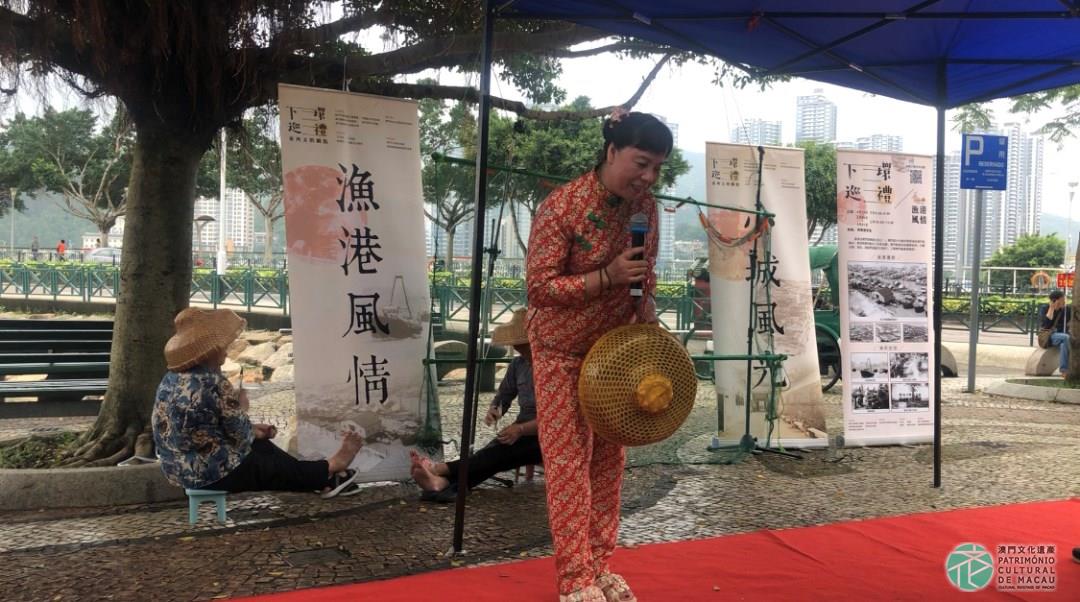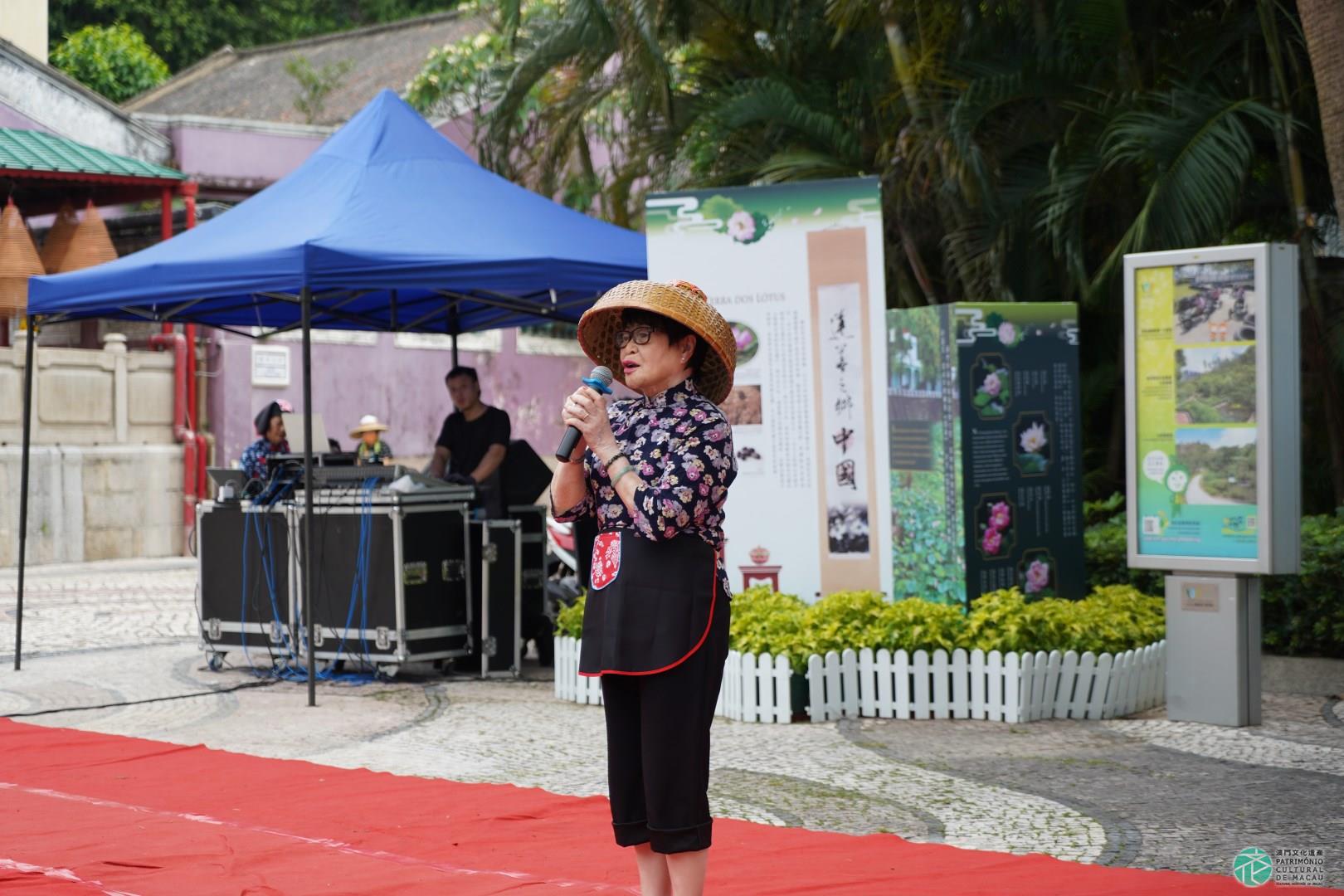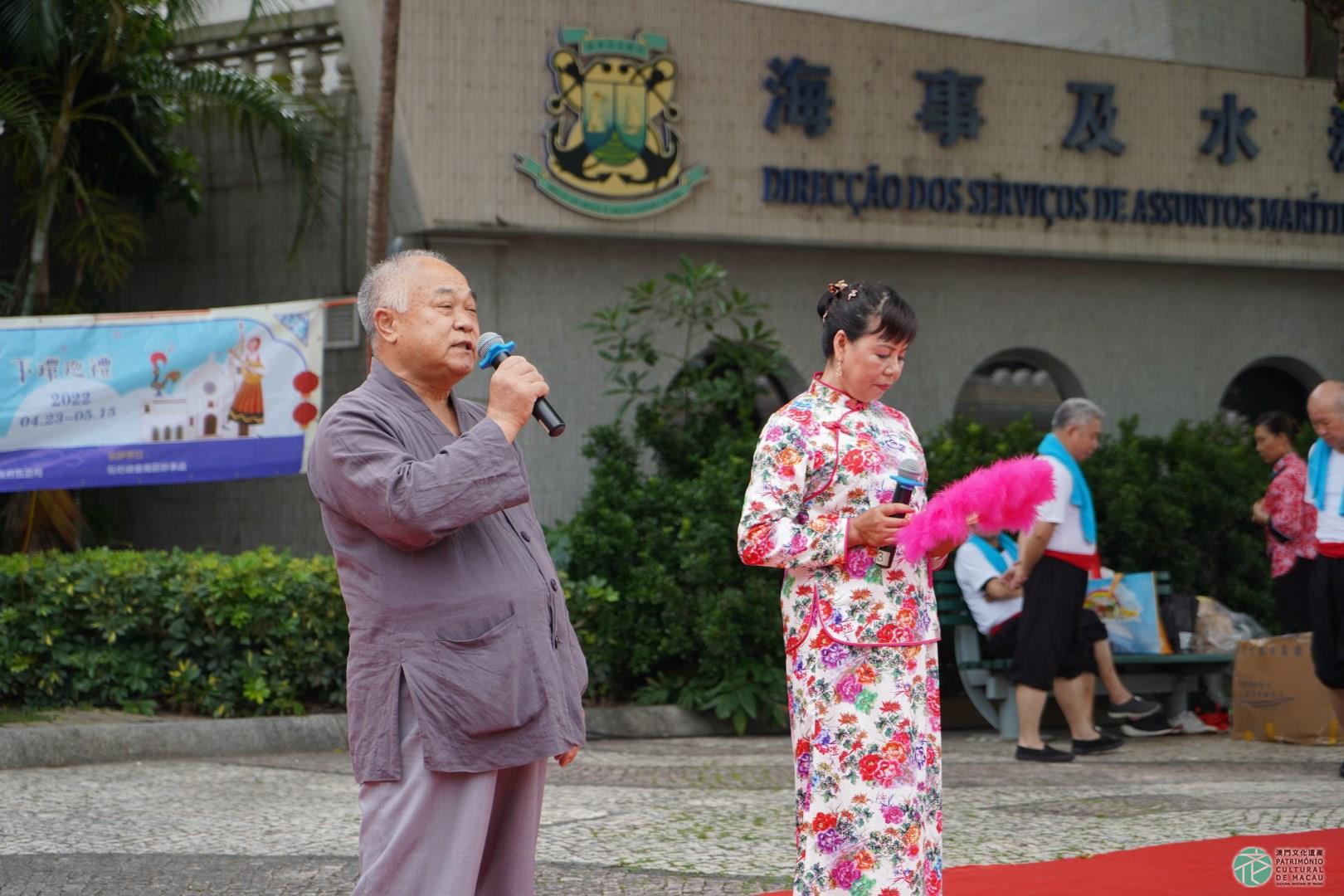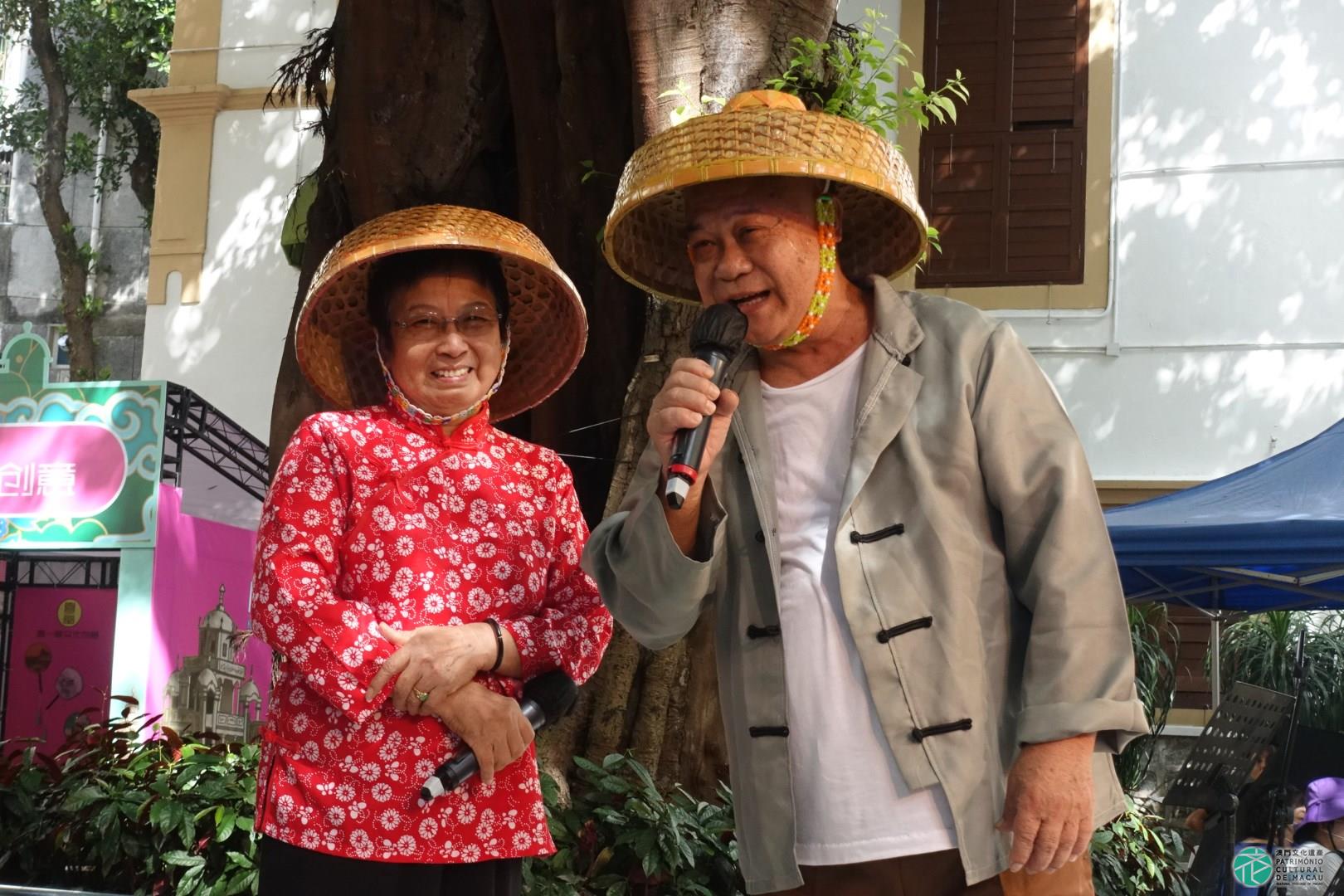Introduction:
Saltwater songs, also known as “vernacular fishermen’s songs”, are oral forms of cultural expression that are a tradition which depicts part of the local fishermen’s daily life and entertainment. They are mostly popular in the Pearl River Delta region and have a long history. They are sung in Cantonese, without any music, and they feature both long and short lyrics. Different melodies, wording or narratives correspond to different pitches and rhythms. The subjects vary from words exchanged between neighbors, relationship themes between men and women, weddings and funerals. Saltwater songs are free in style, they are sung regarding to the singer's own arrangement and composition and their tones depend on the lyrics, with their rhythms being smooth and flexible. They are also reflections of fishermen’s feelings about the experience of sailing in the waves and living in moving boats.
Conservation Status:
Saltwater songs were popular among Macao’s early fishermen communities. In recent years, however, due to a reduction in the number of fishermen, as well as transformation in their lifestyles and the use of mechanical fishing boats, fewer local fishermen still sing saltwater songs nowadays when they arrive on shore. Even though there are still a few fishermen who continue to sing saltwater songs, the way in which these performances are transmitted is based on memory and verbal teaching, especially between family members.
Heritage Value:
Saltwater songs are traditional oral forms of expression performed by local fishermen groups in the form of duets, with calls and responses. Featuring strong local elements, these songs reflect Macao fishermen’s emotionsand perceptions about things in their daily life that are part of their experience, including references that are linked to Macao’s fishermen culture. As important expressions about local fishermen’s identity, saltwater songs are a significant cultural element for further research about the local fishing industry and the development of local music.



